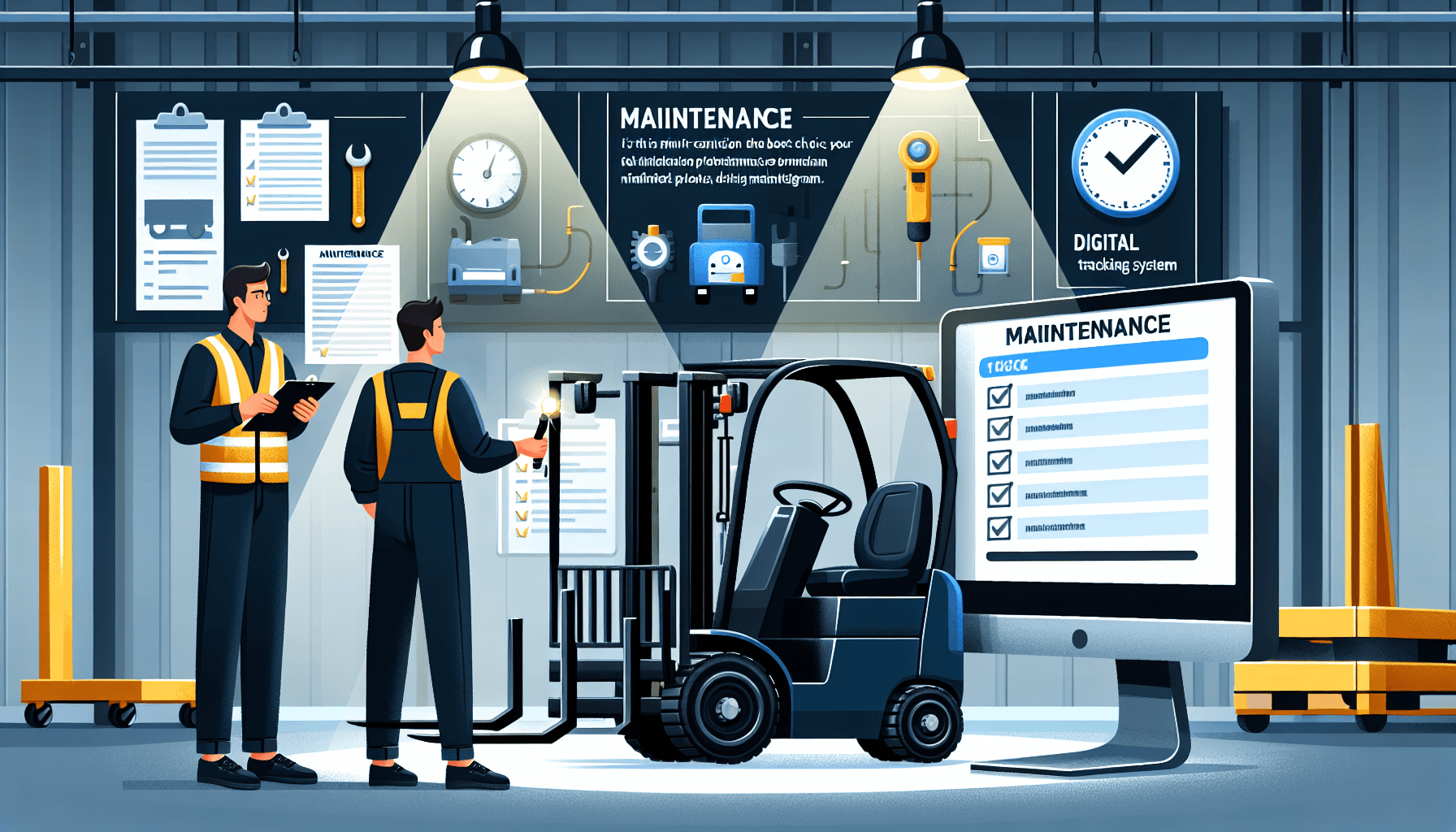In today’s fast-paced and competitive business environment, warehouse optimization is crucial for companies to stay ahead. A key component of ensuring smooth warehouse operations is maintaining the forklift fleet in top condition. Forklifts play a vital role in material handling, and any breakdown or inefficiency can result in costly delays and inefficiencies.
Why Forklift Maintenance Programs Are Essential
Implementing a proactive forklift maintenance program is critical for businesses looking to maximize efficiency and reduce costs. Maintenance programs help identify potential issues before they turn into major problems, ensuring that the forklifts are always in optimal working condition. Here are some key reasons why forklift maintenance programs are essential:
- Improved Safety: Regular maintenance helps identify and fix any safety hazards associated with forklifts. This ensures that the equipment is safe to operate, reducing the risk of accidents and injuries in the warehouse.
- Enhanced Productivity: Well-maintained forklifts function at their full potential, resulting in improved productivity. Regular servicing and inspections help identify any performance issues and address them promptly, minimizing downtime.
- Extended Lifespan: Regular maintenance helps extend the lifespan of forklifts. By addressing minor issues early on, businesses can prevent major breakdowns and avoid the need for costly replacements.
- Cost Savings: By implementing a forklift maintenance program, businesses can significantly reduce repair costs. Regular servicing helps identify and fix small issues before they escalate into more expensive repairs.
- Compliance with Regulations: Forklifts are subject to various safety regulations. By having a maintenance program in place, businesses can ensure that their equipment meets all the necessary compliance standards.
Now that we understand the importance of forklift maintenance programs let’s explore some key factors to consider when choosing the best program for your business:
Factors to Consider When Choosing a Forklift Maintenance Program
- Experience and Expertise: Look for a maintenance provider with extensive experience in maintaining forklifts. They should have a team of skilled technicians who are familiar with different types of forklifts and their specific maintenance requirements.
- Range of Services: Consider the range of services offered by the maintenance program. It should include regular inspections, preventive maintenance, repairs, and emergency support. Comprehensive coverage will ensure that all your forklift maintenance needs are met.
- Response Time: Time is of the essence when a forklift breaks down. Choose a maintenance provider that offers quick response times, minimizing any disruptions to your operations.
- Customization: Every warehouse has unique requirements when it comes to forklift maintenance. Look for a program that can be tailored to suit your specific needs and budget.
- Cost-Effectiveness: While price shouldn’t be the sole determining factor, it is important to consider the cost-effectiveness of the maintenance program. Compare quotes from different providers and evaluate the value they offer for the price.
- Track Record: Do your research and find a maintenance provider with a proven track record of delivering high-quality service. Read customer reviews and testimonials to get a better understanding of their reputation.
At HCO Innovations, we understand the significance of forklift maintenance in optimizing warehouse operations. Our turnkey forklift maintenance solutions are designed to meet the specific needs of businesses looking to enhance safety, productivity, and cost-effectiveness in their warehouses. With our experienced technicians and comprehensive range of services, we ensure that your forklift fleet is always in peak condition.
The Importance of Regular Forklift Maintenance
Regular maintenance is key to keeping your forklifts in optimal working condition. It helps identify any potential issues and allows for timely repairs, preventing major breakdowns and costly downtime. Here are some essential maintenance tasks that should be included in your program:
- Inspections: Regular inspections help identify any visible damage or wear and tear on the forklifts. This includes checking for leaks, inspecting tires, brakes, and hydraulics, and ensuring lights and safety features are in working order.
- Fluid Checks and Replenishment: Regularly checking fluid levels such as hydraulic oil, engine oil, coolant, and brake fluid is crucial to prevent any damage or malfunctions.
- Filter Replacements: Dirty or clogged filters can hinder the performance of the forklifts. Regularly replacing filters, such as air filters and fuel filters, helps maintain optimal performance.
- Component Lubrication: Proper lubrication of moving parts reduces friction and wear, ensuring smooth operation of the forklift. This includes lubricating chains, bearings, and other critical components.
- Battery Maintenance: If your forklifts are electric, proper battery maintenance is essential. This includes routine inspections, cleaning battery terminals, and ensuring proper charging and watering.
- Documentation: Keep detailed records of all maintenance tasks, repairs, and inspections. This helps track the maintenance history of each forklift and aids in identifying any recurring issues.
By implementing a comprehensive forklift maintenance program and partnering with a trusted maintenance provider like HCO Innovations, you can ensure that your forklift fleet operates at peak performance, leading to improved safety, productivity, and cost-effectiveness in your warehouse operations.

